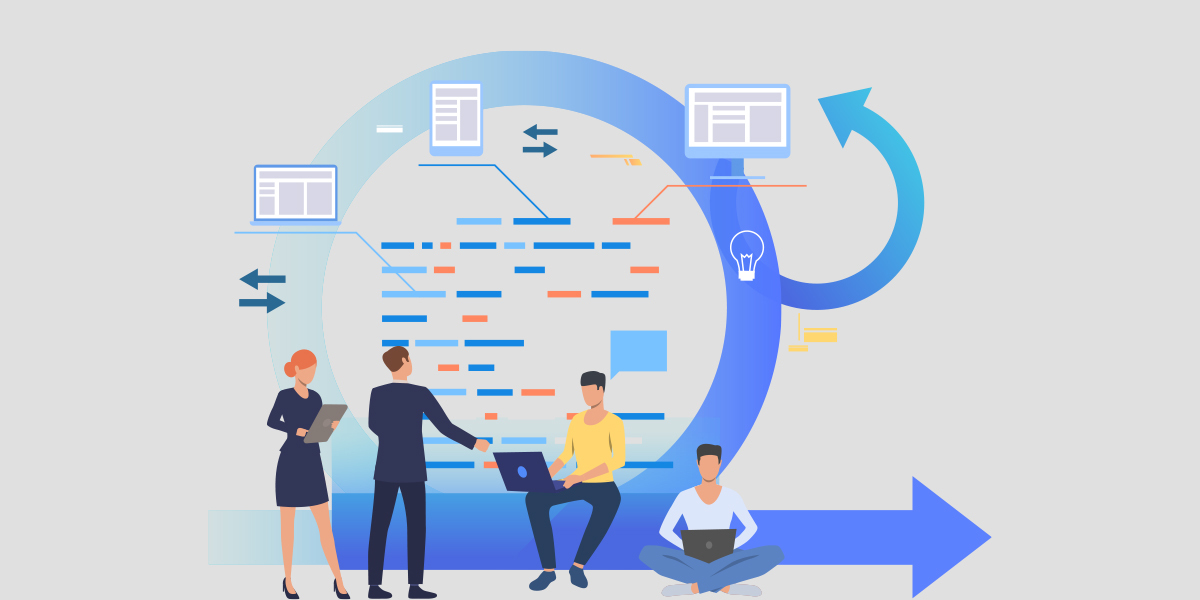As we find ourselves in the 21st century, it’s evident that technology is advancing at an unprecedented pace. People have seamlessly integrated technology into every aspect of their lives, using it as a tool to simplify and enhance their daily routines. In this fast-paced environment, it should come as no surprise that businesses need to adapt to current trends in order to stay relevant and thrive. Having outdated software may affect the business growth. According to International Data Corporation (IDC) 70% of organizations are still using Legacy systems that are more than 10 years old.
To stay ahead in the competitive landscape, it’s crucial to shed the burden of legacy systems and embrace modernization. In this article, we’ll explore the compelling reasons why legacy application modernization should be at the forefront of your business strategy.
What is a legacy system?
A legacy system means software or technology that is outdated but continues to be utilized within an organization. These systems are often outdated or lack compatibility, functionality, or efficiency compared to more modern technologies. These systems may also pose cybersecurity risks as outdated data security measures may no longer be effective in safeguarding sensitive information.
Why Modernizing a Legacy System is Important?
1. Complexity and Cost of Maintenance
As per Gartner’s projection, companies are expected to allocate 40% of their IT budgets toward the sole upkeep of technical debt by the year 2025. Keeping outdated software operational is not only complex but also exceptionally costly. Legacy systems were built to serve functions that are now obsolete. They require substantial financial resources to sustain because technology and processes have evolved rapidly since their inception.
Finding skilled professionals well-versed in maintaining outdated systems is increasingly challenging, leading many companies to outsource IT support at exorbitant costs. Modernizing legacy software streamlines maintenance, reduces costs, and leverages the familiarity of today’s designers and developers with modern systems, resulting in cost-efficient support.
2. Leveraging Modern Technology for Enhanced Performance
With technology constantly evolving, it’s essential for your business systems to keep pace. Legacy systems often struggle to incorporate the latest technological advancements, primarily due to skill gaps or outdated technology. Modernizing legacy software allows you to assess the relevance of existing technology and retain what is still pertinent while building something new. This approach overcomes bottlenecks and inefficiencies. It empowers businesses to enhance productivity, automate processes, and improve operational efficiency. As productivity rises, manual labor and costs decrease, leading to more efficient operations.
3. Mitigating Security Threats
Aging systems are more vulnerable to security threats, as they no longer receive updated security patches. This lack of support exposes businesses to security vulnerabilities. Modernized software offers robust security measures, identifying and preventing cyber threats efficiently. It comes with regular security patches and cutting-edge encryption, reducing cybersecurity risks.
4. Facilitating Business Growth and Scalability
Legacy systems can hinder business growth and scalability. They struggle to adapt to evolving requirements as companies expand. Modernizing legacy software provides an advanced IT architecture that accommodates growth and expands operations. It enhances throughput capacity, ensuring the efficient management of increased scale.
5. Enhancing Application Usability
Legacy systems often lack the usability and user-friendliness of modern applications, limiting innovation and responsiveness. Modernization revitalizes user experiences by leveraging cutting-edge technology. It eliminates workflow obstacles, enhances business responsiveness, and paves the way for growth.
6. Seamless Mobility
In an era of remote work and mobile access, legacy systems designed for on-premise use hinder efficiency and accessibility. Legacy application modernization makes business software accessible from anywhere, empowering employees to make data-driven decisions on the go.
7. Improved User Experiences
Businesses must meet consumer demands for seamless and engaging experiences. Outdated software can hinder operational efficiency, affecting customer experiences. Modernizing legacy software enables businesses to focus on delivering value to customers, incorporating innovations like virtual reality (VR) and cloud-based accessibility. This modernization enhances customer satisfaction and loyalty.
8. Easy Compliance with Regulatory Requirements
Strict regulatory compliance standards such as SOX, PCI, or HIPAA require up-to-date technology support. Legacy systems that fail to comply may face penalties and fees.Updating business software ensures compliance with the latest technology requirements.
9. Reducing Failure Rates
Aging software systems have higher failure rates due to the lack of updates, security patches, and proper maintenance. Modernized software offers enhanced reliability, reducing downtime, improving customer loyalty, and enhancing your business’s reputation.
10. Gaining a Competitive Edge
Modernizing legacy software is a top IT priority for many organizations. It focuses on efficiency, cost reduction, scalability, and meeting consumer demands, providing a competitive edge over rivals still using legacy systems.
Conclusion
Legacy system modernization is not a luxury but a necessity in the fast-paced, technology-driven business landscape of 2020 and beyond. It reduces costs, enhances performance, strengthens security, fosters growth, and improves user experiences. By embracing modernization, businesses can stay competitive, compliant, and resilient in the face of evolving technology. Don’t let outdated software hold you back; it’s time to embark on the journey of legacy system modernization for a brighter business future.
Partner with a us, as a software development company we ensure a smooth transition and realize the full potential of your modernization efforts. Feel free to reach out to info@authorselvi.com for further details.
